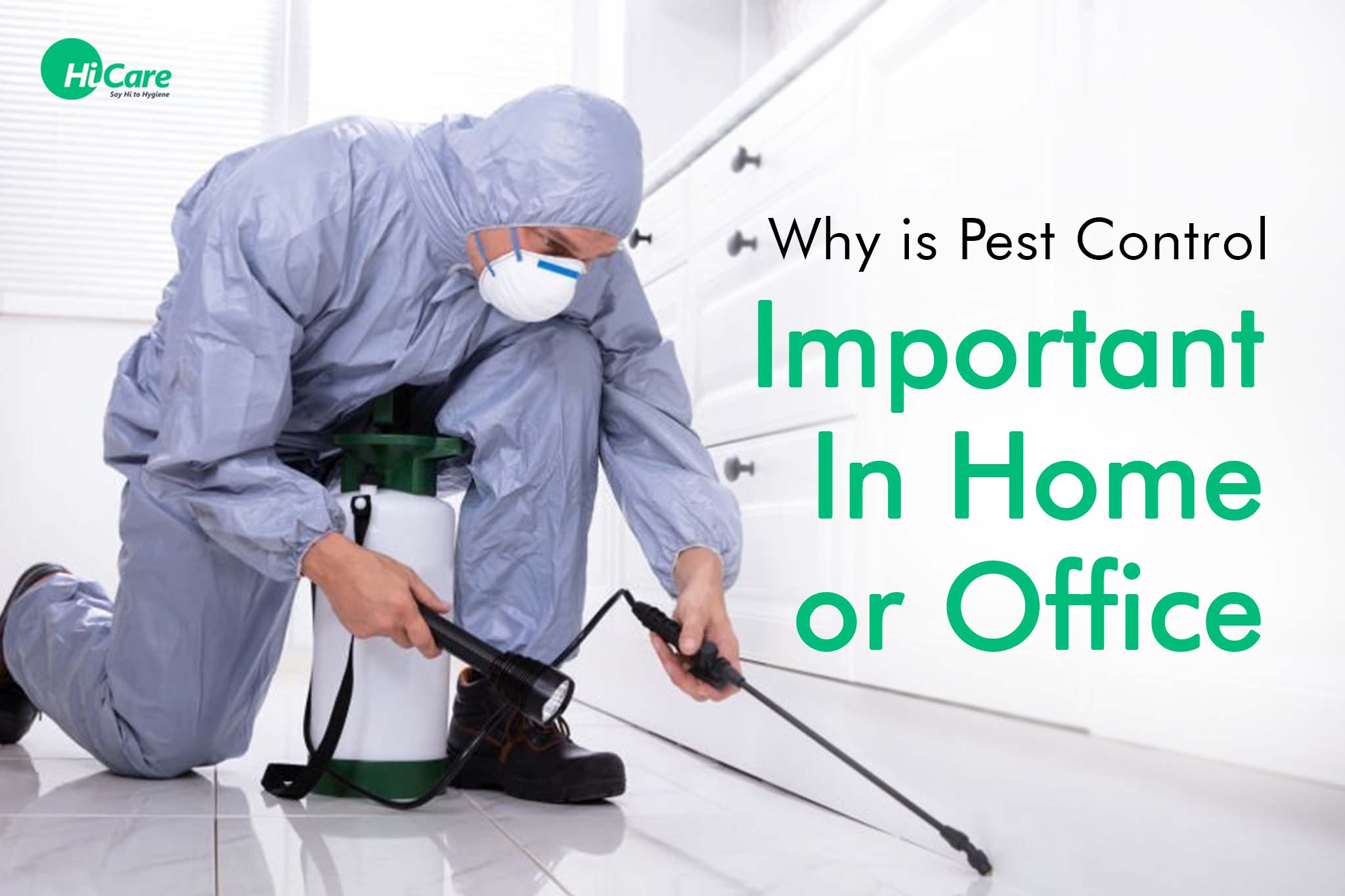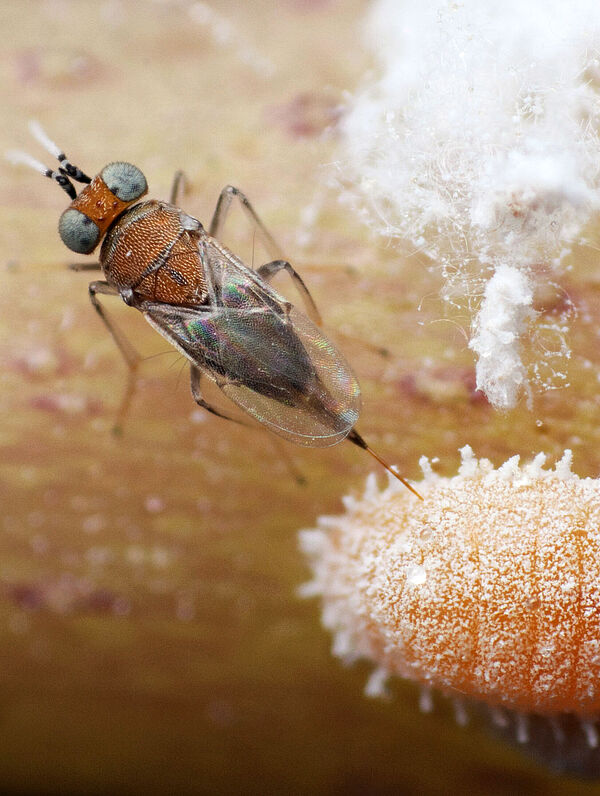Expert Rodent Control Port Charlotte to Stop Damage to Your Home
Reveal the Value of Insect Control in Keeping a Healthy And Balanced Atmosphere and Treatment Strategies

The Role of Parasites in Ecosystems
Insects, often checked out solely as annoyances, play a diverse duty in communities that is essential for keeping ecological equilibrium. They add considerably to various ecological procedures, including pollination, nutrient biking, and bug control. For instance, lots of insect varieties, such as bees and butterflies, are essential pollinators for a variety of plants, which in turn supports biodiversity and food manufacturing.
In addition, pests function as prey for many predators, developing a crucial web link in food internet. This connection ensures the survival of various species and aids regulate populations within environments (Termite treatment Port Charlotte). Decomposer parasites, such as particular beetles and fungis, are important in breaking down organic matter, thus enriching dirt and facilitating vitamins and mineral recycling.
Alternatively, while pests can be useful, their overpopulation or invasion into non-native environments might interfere with these eco-friendly features. This complexity emphasizes the relevance of recognizing bug characteristics, as efficient bug administration techniques must take into consideration both their eco-friendly duties and prospective effect on human activities. Balancing pest visibility while decreasing injury is necessary for preserving the stability of environments and ensuring agricultural productivity.
Health And Wellness Threats Related To Parasites
The existence of insects in numerous atmospheres extends past their environmental duties, as they likewise pose substantial health and wellness threats to people and animals. Numerous insects, including bugs, rats, and parasites, are carriers of conditions that can have significant health and wellness implications. Rodents are understood to send hantavirus and leptospirosis, both of which can lead to extreme breathing and kidney concerns, respectively.
Bugs such as ticks and mosquitoes are notorious for spreading out vector-borne diseases like jungle fever, dengue fever, and Lyme illness. These illnesses can result in high morbidity and mortality prices, specifically in vulnerable populations. In addition, pests like cockroaches and insects can intensify allergies and asthma, adding to breathing troubles in individuals, especially those with pre-existing conditions.
Additionally, the existence of bugs can result in emotional stress and discomfort, impacting general health. Contamination of food and surface areas by parasite droppings and remains can bring about foodborne illnesses, highlighting the value of preserving hygienic problems. Comprehending the health threats associated with pests is important in acknowledging the necessity of effective parasite monitoring methods to guard animal and human health and wellness.

Advantages of Reliable Pest Control
Efficient bug control is crucial for maintaining a safe and healthy environment, as it regularly alleviates the countless threats connected with parasite problems. Among the key advantages of reliable bug monitoring is the decrease of wellness threats. Pests such as rodents, roaches, and insects are vectors for illness that can impact both family pets and human beings. By regulating these populaces, the chance of condition transmission is significantly lowered.
Furthermore, efficient bug control safeguards property and structures from damage. Lots of insects, like termites and carpenter ants, can cause extensive architectural damage that might need pricey repair services. By proactively managing these homeowners, companies and problems can safeguard their financial investments.
Another considerable click to read more benefit is the improvement of general quality of life. A pest-free environment contributes to psychological well-being and decreases stress and anxiety related to invasions. Reliable parasite control fosters a safer environment for children and animals, making sure that homes continue to be refuges free from harmful chemicals and disease-causing organisms.
Typical Parasite Control Strategies

In the world of bug administration, various strategies are used to fight problems properly. These methods can be broadly classified into 3 main strategies: cultural, mechanical, and chemical controls.
Social control includes modifying methods to reduce bug establishment, recreation, and survival. This may consist of crop turning, proper cleanliness, and environment control, which jointly produce an environment much less for pest expansion.
Mechanical control employs physical techniques to get rid of parasites (Termite treatment Port Charlotte). Strategies such as vacuum cleaners, obstacles, and catches are generally made use of to straight get rid of pests from an area. This approach is particularly effective for managing rodents and bugs without using harmful chemicals
Chemical control entails the application of chemicals to take care of parasites. These substances can be classified into herbicides, insecticides, and fungicides, each targeting certain sorts of insects. It is important to utilize these chemicals sensibly, adhering to security guidelines and laws to decrease possible damage to non-target species and the environment.
Each parasite control strategy has its benefits and restrictions, and typically, an integrated approach incorporating several methods generates the finest lead to keeping a pest-free setting.
Sustainable Parasite Administration Practices
Sustainable parasite management techniques include a range of strategies made to lessen environmental influence while successfully controlling parasite populations. These techniques prioritize using eco-friendly techniques over chemical pesticides, thereby lowering the danger of harm use this link to non-target types, including valuable bugs, wild animals, and people.
Integrated Parasite Management (IPM) is a keystone of sustainable techniques, combining organic, social, mechanical, and chemical techniques to manage bugs. For instance, biological control entails introducing all-natural killers or parasites to subdue insect populaces. Social methods, such as crop rotation and polyculture, interfere with pest life process and enhance ecological community resilience.
Mechanical approaches, such as catches or barriers, can successfully prevent insect gain access to without chemical treatment. Additionally, maintaining healthy and balanced ecosystems through appropriate soil administration, plant wellness, and biodiversity can normally minimize parasite problems.
Education and learning and awareness are crucial components, encouraging areas and individuals to recognize insect dangers early and carry out safety nets. Termite treatment Port Charlotte. By cultivating an all natural strategy that stabilizes bug control with eco-friendly honesty, lasting bug administration methods not only protect frameworks and plants however additionally add to a much healthier setting for future generations
Final Thought

Understanding the wellness dangers linked with parasites is vital in acknowledging the necessity of efficient pest monitoring techniques to safeguard human and animal wellness.
Effective parasite control is vital for maintaining a secure and healthy setting, as it constantly mitigates the many risks connected with pest invasions.Integrated Pest Administration (IPM) is a cornerstone of sustainable techniques, integrating organic, cultural, mechanical, and chemical techniques to manage bugs. By recognizing the role of bugs, recognizing connected wellness risks, and utilizing varied therapy methods, a lasting method to pest administration can be attained. Integrated Insect Administration (IPM) stresses a holistic method that minimizes harm to helpful organisms while efficiently regulating bug populations.